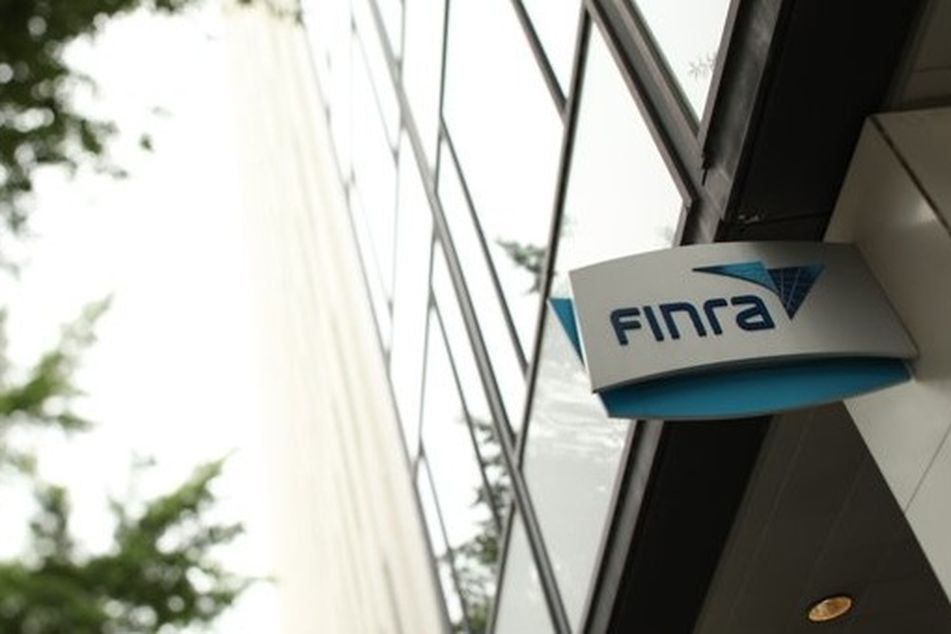Tip from Finra triggered SAC insider case: Sources

According to sources, a heads-up from Finra led the SEC to investigate potential insider trading at SAC.
The biggest insider case ever, an alleged $276 million fraud that has led prosecutors to the inner-circle of SAC Capital Advisors LP’s Steven Cohen, stemmed in part from a referral from the Financial Industry Regulatory Authority, Wall Street’s self-regulator.
The referral came in 2008 from the New York Stock Exchange Division of Market Regulation, which later became part of Finra, according to three people familiar with the matter. Finra touted the case, against ex-SAC portfolio manager Mathew Martoma, under its website headline, “Actions Resulting from Referrals to Federal and State Authorities.”
The question for the government now is: Where do they go from here? Court papers cite a “hedge fund owner” in conversation with Martoma before multimillion-dollar trades were made. But the government must show that a defendant in any insider trading case knew that the trades he was making were based on secret, material information.
“The government is applying extreme pressure on Martoma because they probably have decided he is the one person who can make the case against Cohen,” said John Coffee, a securities law professor at Columbia University. “As a practical matter, they’re going to need the testimony of Martoma.”
Internal E-Mails
Internal SAC e-mails could help the government build more cases in its investigation, several former prosecutors said. A senior trader who isn’t named in court documents said in an e- mail to Martoma as he began selling shares that “no one knows except you me and [the Hedge Fund Owner],” according to the complaint filed in Manhattan federal court. Cohen isn’t named in court papers or charged with a crime.
Martoma, an ex-portfolio manager for SAC’s CR Intrinsic Investors, was arrested Nov. 20 in what the U.S. said was the most lucrative insider scheme ever — one that took place in the arena of health-care stocks. Martoma, who attended Harvard Law School and wrote medical-ethics articles under another name, traded on a neurologist’s tips about a clinical drug trial for an Alzheimer’s drug, prosecutors said. People familiar with the matter said Cohen is the unidentified hedge fund owner with whom Martoma spoke before making his allegedly illegal trades.
Finra, which oversees 635,000 securities representatives, detects one-time offenders who may tip friends and family, as well as more sophisticated rings that work to conceal their trading and sources of inside information. Referrals from Finra are often pursued by investigators from the Securities and Exchange Commission and prosecutors from the Justice Department.
‘Sophisticated Investors’
“Insider trading investigations involving sophisticated investors such as CR Intrinsic can take a long time to develop,” said Cameron Funkhouser, head of Finra’s office of fraud detection and market intelligence. “No one ever confesses, so building a case requires in-depth analysis of hundreds of thousands of trading records and other data.”
The regulator runs electronic surveillance on all shares traded on the New York Stock Exchange, on Nasdaq, on the American Stock Exchange and over the counter. Its investigators monitor numerous factors including the price and volume of shares, as well as historical trading patterns and news disseminated by publicly traded companies.
The initial referral in the case against Martoma flagged what appeared to be suspicious short-sales of stock, said the people familiar with the matter, who declined to be identified because it isn’t public. Subsequent referrals built on the earlier one and explored other instances of questionable trading, they said.
Case Origins
Peter Donald, a spokesman for the Federal Bureau of Investigation, and Ellen Davis, a spokeswoman for U.S. Attorney Preet Bharara, whose office brought the charges, declined to comment on the origins of the case. John Nester, a spokesman for the SEC, declined to comment on the referral. The SEC sued Martoma and his firm, and while needing the same type of proof of knowledge as prosecutors do, the agency has an easier standard of proof than in a criminal case.
At a Nov. 20 press conference, SEC lawyer Sanjay Wadhwa said the case “was at least based in part from other investigations that focused on CR Intrinsic, but also based in part from a referral from Finra.”
‘Significant Dissent’
According to the government, Martoma, 38, urged Cohen to buy shares of Wyeth LLC and Elan Corp. after getting encouraging news from Sidney Gilman, a University of Michigan doctor and researcher, about the prospects of their Alzheimer’s drug bapineuzumab, or bapi. Martoma and Cohen remained bullish on Wyeth and Elan despite “significant dissent” within CR Intrinsic and Stamford, Connecticut-based SAC “on the wisdom of a large unhedged investment” in those companies, according to the SEC complaint, filed Nov. 20 in Manhattan federal court.
After learning from Gilman about bapi’s poor results in the clinical trial, Martoma had a 20-minute phone call with Cohen on July 20 in which he said he was no longer “comfortable” with the Elan investments, according to the government.
Gilman, 80, has reached a non-prosecution agreement with the government and will testify against Martoma, prosecutors said. His account bolsters a case that’s based on e-mails between the two men, SAC business and trading records, and “sworn testimony of individuals associated with the hedge fund,” according to the criminal complaint.
‘Hard Work’
“Mathew Martoma was an exceptional portfolio manager who succeeded through hard work and the dogged pursuit of information in the public domain,” his lawyer, Charles Stillman, said Nov. 20 in an e-mailed statement, rejecting the charges.
Martoma, who has also used the name A. Mathew Thomas, attended Duke University as an undergraduate and studied at Harvard Law School, according to Stillman. An A. Mathew Thomas is listed as the co-author of two medical-ethics papers, one of which identifies him as a member of Harvard Law’s class of 2000 and as the former deputy director of the National Human Genome Research Institute’s Office of Genome Ethics.
Martoma was deposed by the SEC within the past year and asserted his constitutional right against self-incrimination, according to people familiar with the matter. The hedge fund manager faces as long as 20 years in prison if convicted. Stillman declined to comment on the Finra referral.
No Wiretaps
SEC Enforcement Director Robert Khuzami said at the Nov. 20 press conference that the government didn’t use wiretaps or other recording devices in the SAC case. Such methods were leveraged to great success in the prosecutions of Galleon Group LLC hedge fund co-founder Raj Rajaratnam, who is serving 11 years for insider trading, and former Goldman Sachs Group Inc. director Rajat Gupta, who was sentenced to a two-year term.
Bharara declined to say whether prosecutors are targeting Cohen, whom he didn’t name.
“Mr. Cohen and SAC are confident that they have acted appropriately and will continue to cooperate with the government’s inquiry,” Jonathan Gasthalter, an SAC spokesman, said Nov. 20 in an e-mailed statement. He declined to comment on Nov. 21 about the government’s investigation or the Finra referral.
Should prosecutors seek to build a case against Cohen, they may cite the alleged 20-minute conversation between Martoma and the hedge fund owner, said Kit Addelman, a former regional director of the SEC now in private practice with the firm Haynes & Boone LLP. The two spoke after Gilman e-mailed Martoma a 24- page presentation detailing poor drug test results, following which SAC began selling Elan and Wyeth shares, according to the complaint.
Trader Message
Internal SAC e-mails may also help the government support a case against Cohen, lawyers said. One example is the message from the senior trader who told Martoma the hedge fund owner “knows.”
In addition, prosecutors may point to what Bharara said at the press conference was an almost $1 billion swing in SAC’s positions in Elan and Wyeth once Martoma got the alleged tip.
Cohen and Martoma told the firm’s senior trader to sell Elan shares “in a way so as to not alert anyone else,” according to the complaint. SAC used so-called dark pools, which don’t identify brokers and institutions that buy and sell on their systems, and algorithms, which break up orders to disguise size, prosecutors said. An effort to conceal trading could be used by the government to argue circumstantially that there was knowledge the trades were improper.
Plea Deal
Any case against Cohen might also require that Martoma first reach a plea deal with the government and agree to testify, said Coffee of Columbia Law School.
Still, if the government lacks wiretaps or other recordings of SAC employees, it may be difficult to bring charges against anyone above Martoma, said David Kotz, a former SEC inspector general who is now a director with the consulting firm Berkeley Research Group.
“Quite frankly, if that e-mail and the phone call on Sunday were immaterial to the government, they wouldn’t bother putting it in the complaint,” said Bradley Simon, a former federal prosecutor now in private practice in New York. “They’re taking great pains in this complaint to place the hedge fund owner, Steve Cohen, at the epicenter of this activity with Martoma.”
–Bloomberg News–
Learn more about reprints and licensing for this article.






